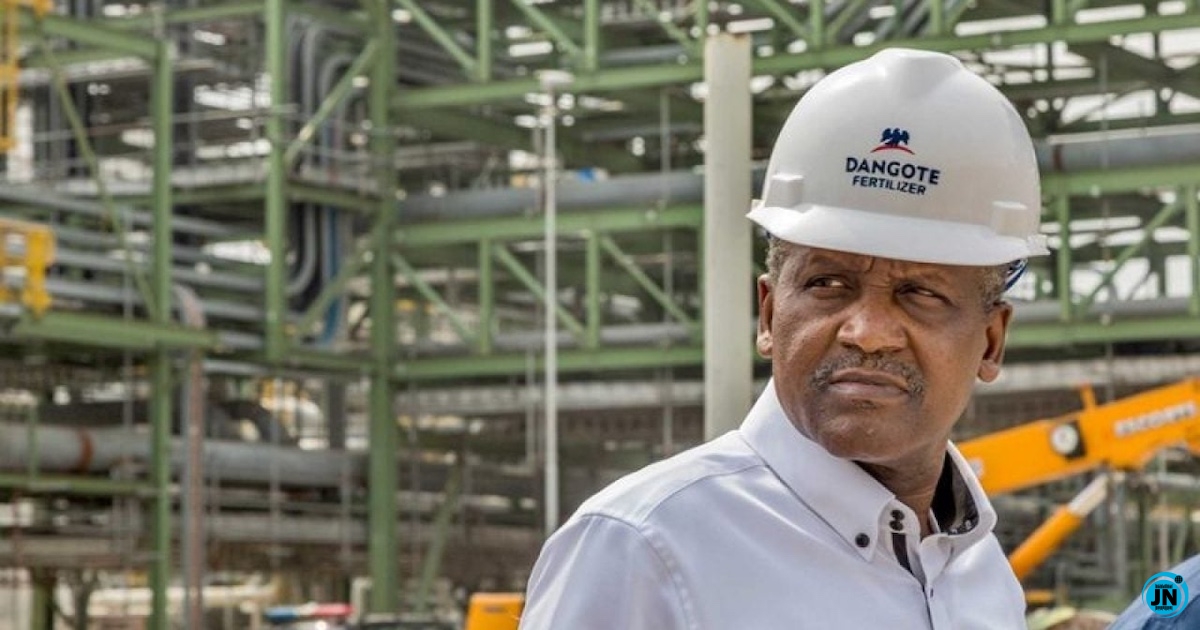
Aliko Dangote, President of the Dangote Group and Africa’s richest man, has openly questioned the viability of Nigeria’s state-owned refineries in Port Harcourt, Warri, and Kaduna, expressing strong skepticism about their ability to function effectively again despite staggering investments totaling approximately $18 billion over the years.
Dangote made these remarks on Thursday while playing host to members of the Global CEO Africa network from the Lagos Business School, who were visiting the newly constructed Dangote Petroleum Refinery located in the Lekki Free Trade Zone, Lagos.
While addressing the delegation during their facility tour, the billionaire businessman noted that the government-owned refineries, under the management of the Nigerian National Petroleum Company Limited (NNPCL), have become synonymous with failure despite repeated funding efforts meant to revive them. He argued that all the money invested has not translated into any tangible results, and he doubted that any substantial improvements would ever be achieved.
“They have spent about $18 billion on those refineries, and they are still not working. I don’t think, and I doubt very much, if they will ever work,” Dangote stated firmly, underlining the deep-rooted inefficiencies and mismanagement that have plagued the country’s oil refining sector for decades.
Dangote also took the opportunity to recount the group’s previous attempt to acquire these refineries during the administration of President Olusegun Obasanjo. He revealed that his company successfully bought the refineries in January 2007 as part of a privatization effort, only to have the deal reversed a few months later following the inauguration of President Umar Musa Yar’Adua.
According to Dangote, the reversal was a result of misleading advice given to President Yar’Adua by the then-managing director of the refineries, who reportedly convinced the president that the facilities were a “parting gift” from Obasanjo and that the government could rehabilitate and operate them successfully without private involvement.
“The refineries we bought in January 2007 were returned to the government because there was a change of administration. The MD at the time told Yar’Adua the refineries would work and that they were handed over as a parting gift,” Dangote explained, lamenting what he described as a major missed opportunity for the country’s oil sector transformation.
Dangote further highlighted the operational inefficiencies of the government-owned refineries when compared to his own state-of-the-art facility. He pointed out that while the government refineries allocate only about 22 per cent of their production capacity to Premium Motor Spirit (PMS), commonly known as petrol, the Dangote refinery—currently Africa’s largest single-train refinery with a processing capacity of 650,000 barrels per day—dedicates over 50 per cent of its output to petrol production, significantly contributing to the domestic fuel supply chain.
He emphasized that his refinery is designed not only to improve Nigeria’s fuel supply and reduce dependence on imported products but also to serve as a model for how efficient and well-managed refining operations can transform an entire sector and strengthen the national economy.
Dangote’s statements have since sparked widespread discussions among industry stakeholders, policymakers, and the general public, with many Nigerians expressing concerns over the fate of public funds and the future of the country’s critical oil infrastructure.

